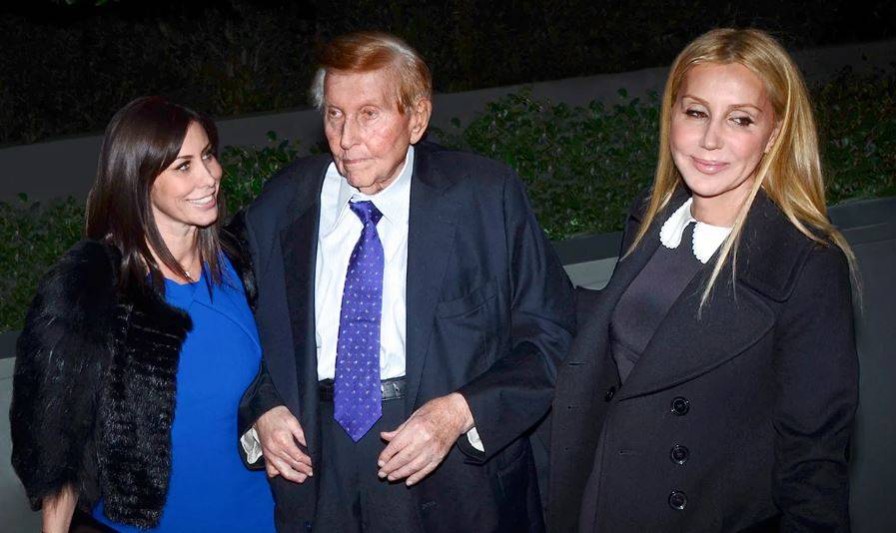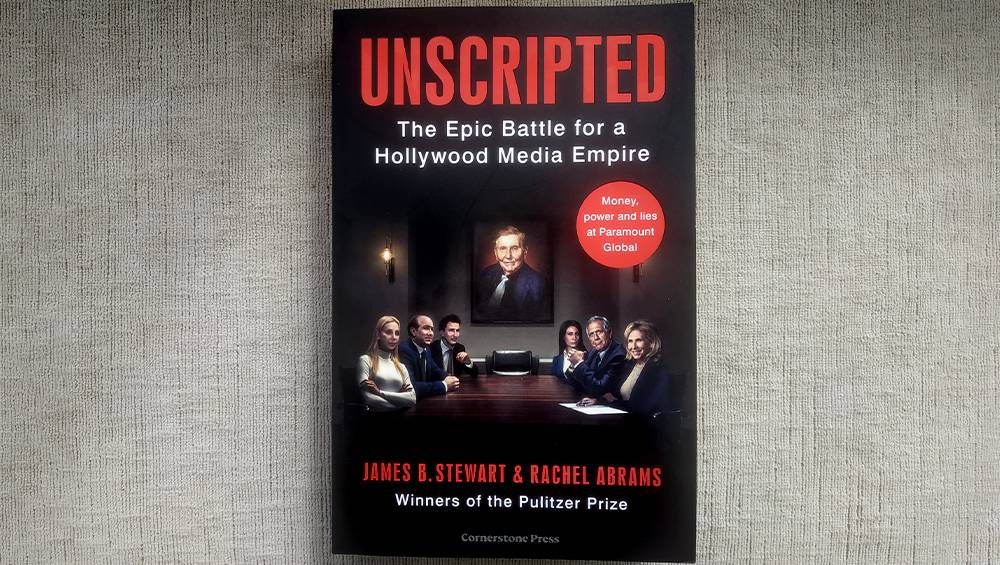

The court of Sumner Redstone and his ladies in waiting
The scandalous story of a media mogul’s final years.
NBR columnist Nevil Gibson speaks with Calida Stuart-Menteath.


The scandalous story of a media mogul’s final years.
NBR columnist Nevil Gibson speaks with Calida Stuart-Menteath.
The TV series Succession is widely praised but not, I suspect, due to any connection with how business is conducted. While its melodramatics may satisfy a need for entertainment, it takes plain print to demonstrate the “drumbeat of greed, backslapping, plotting and betrayal of the upper levels of American business and society”.
Those are the words of John B Stewart, who knows the territory well. He wrote the seminal Den of Thieves in 1991 about insider trading on Wall Street while a journalist on the Wall Street Journal. Since then, he has turned his attention to powerful law firms and prosecutors, the medical establishment, the use of false statements, political misadventures ,and the biography of a war hero who saved many lives during the 9/11 attacks on the World Trade Center.

James B Stewart.
Stewart’s 11 books make him the doyen of America’s lawyer-trained financial journalists as well as one of its bestselling authors. He is now a New York Times and New Yorker contributor. He first wrote about Hollywood in Disneywar (2005) and has kept an eye on it ever since, observing in his latest book that this part of California has a unique appeal for those seeking money, power, sex, and trophy mansions.
He passes severe judgment on those who moved there from other parts of the US because it’s a place where “no gambit was too outrageous, deceitful or immoral as long as it worked”.
The book is Unscripted, co-written with New York Times journalist Rachel Abrams, about the life of Sumner Redstone and his media empire, which included the Paramount movie studio and the CBS TV network. Ironically, it also owned Simon & Schuster, publisher of Stewart’s books (but not this one).
Stewart didn’t have the scoop on Redstone’s salacious private life or his odious behaviour to all but a few loyal acolytes. (Donald Sutherland plays a version in Amazon’s Swimming with Sharks.) Vanity Fair’s William D Cohan sensationally exposed the story in 2015. At that time, Redstone was 91 and running his multi-billion-dollar businesses from his Los Angele estate by email and phone.
He would live for another six years, during which he was largely incapacitated. This opened the door to opportunity for more than a few people, mainly women, to benefit themselves. As Stewart and Abrams observe, “with his US$14 billion fortune and control of movie and television studios, there was no shortage of women willing, even eager, to be seen with Sumner”, who was pushing 80 at the time of his second and last divorce in 2008.

Sumner Redstone with Manuela Herzer, left, and Sydney Holland, pictured in Vanity Fair.
While Cohan’s story concerns the many characters circling for a share of the Redstone fortune on his expected imminent death, Stewart and Abrams go back to the beginning. They fill in a large amount of detail from their three years of interviewing most of the participants and poring through hundreds of pages of transcripts and other material. The result is 400 pages of text, source notes, and index – plus eight pages of photos.
The book is presented, as might be expected in this age of tell-all TV series, as a “treatment”: a trailer followed by four seasons, each made up of 7-10 episodes, plus an epilogue.
However, before we meet the cast, some back story is essential. The Redstones, a Boston Jewish family originally called Rothstein, were early investors in drive-in movie theatres. Sumner Redstone, a Harvard Law School graduate, left his practice in 1954 aged 31, seized control of the business, renamed it National Amusements, and began to buy stakes in large Hollywood studios.
In 1987, he won a takeover battle for Viacom – owner of radio stations, MTV, and Showtime – followed by Paramount Pictures in 1994 and then Blockbuster, the onetime video giant. His biggest deal was the US$40b purchase of CBS in 2000, giving him two major public companies. He controlled them through his 80% ownership of National Amusements. Crucially, it held 80% of the voting stock in both public companies.
In his private life, Sumner had married Phyllis in 1947 and had two children, Brent and Shari. The couple divorced in 2002. A second marriage to one of Sumner’s many mistresses, Paula Fortunato, ended in 2008.
Now meet others in the cast:
Many others play large and small roles in this saga, which also traces the differing fates of the Redstone businesses as they are affected by entertainment trends. Many of these were negative, from Blockbuster’s failure to pivot to production and streaming as Netflix did, to Paramount’s near collapse as it ran down its acquisition of DreamWorks, ignored MTV, and failed to produce a major hit until last year’s Top Gun: Maverick. It holds sixth place among the major US media companies.

Sumner and Shari Redstone at an award dinner in 2012.
Some of this was due to Sumner Redstone’s incapacitation not being dealt with early enough, while part also resulted from the legal infighting and corporate control battles as Shari Redstone finally got the upper hand and pushed through the Viacom-CBS merger in 2019 shortly before her father’s death.
The book’s epilogue records how departure of the highly regarded Moonves from CBS a year earlier did not prove a disaster and most of the businesses have performed steadily since the pandemic under the Paramount Global banner.
Wall Street today values the business at US$14.5b, well below its 2001 peak of more than US$100b but five times more than its slump to just US$2.9b in February 2009. Overall revenue rose to more than US$30b in 2022 with a reduced net profit of US$1.1b.
The happy ending to this story may be financially reassuring. While there’s some satisfaction that the baddies lost, most kept their fortunes and are still in the game.

Unscripted: The Epic Battle for a Hollywood Media Empire, by James B Stewart and Rachel Abrams (Cornerstone Press UK/Penguin Press USA).
Sign up to get the latest stories and insights delivered to your inbox – free, every day.